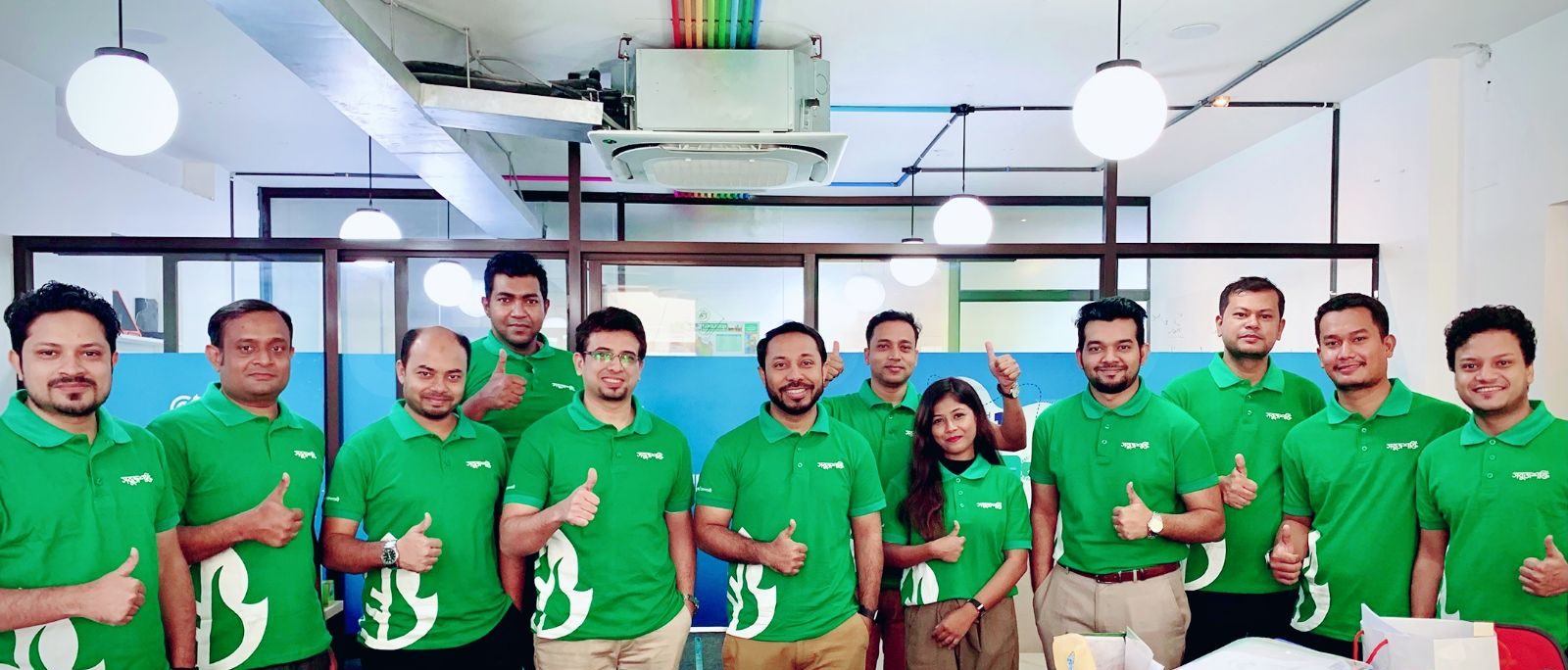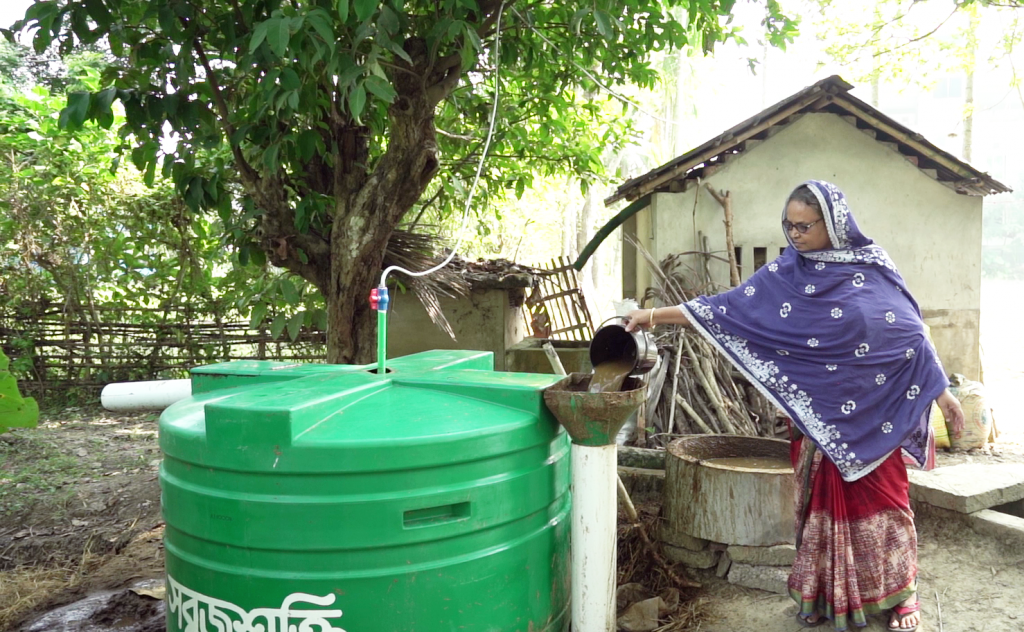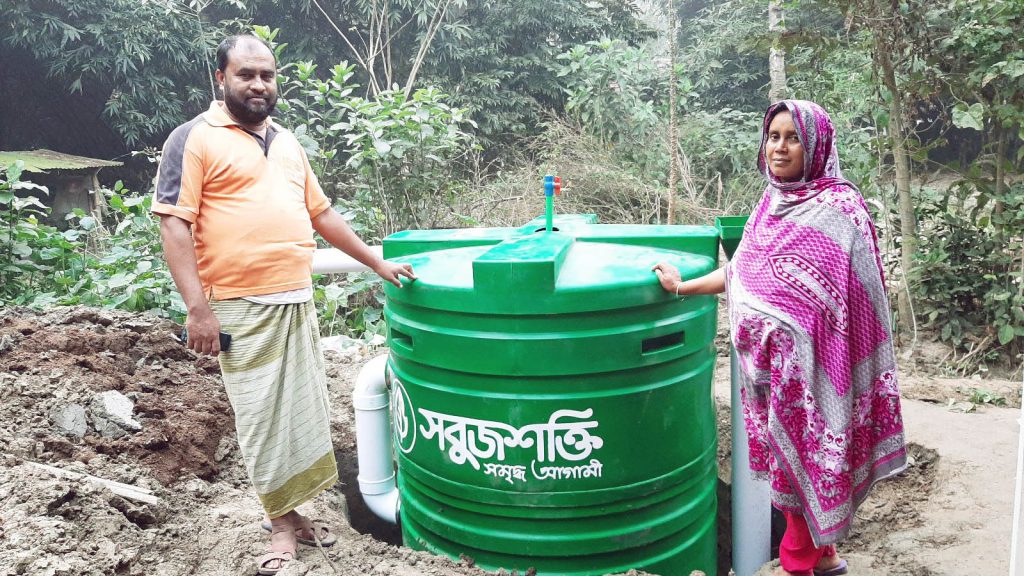
Sustainable and affordable paygo biodigesters in Bangladesh
64%
36%
Partner contribution
$ 1,171,400
DFAT contribution
$ 665,682
Total Value
$ 1,837,082
Start: September 2021 - End: July 2024

ATEC* Bangladesh
ATEC* Bangladesh is an international social enterprise delivering scalable clean cooking technology to households in Bangladesh, Cambodia & beyond.

Australian Government
The Australian Department of Foreign Affairs and Trade works with international partners and other countries to tackle global challenges, increase trade and investment opportunities, protect international rules, keep our region stable and help Australians overseas.
A partnership to scale ATEC’s paygo biodigester technology to provide more rural households with sustainable and affordable biogas for cooking and for use as an organic fertiliser. The partnership builds on a successful pilot in Bangladesh and extensive sales in Cambodia.
Context
Bangladesh is heavily reliant on biomass fuels (firewood and cow dung), with an estimated 85% of rural households using biomass as their main cooking fuel. Rural women devote an average of 150 hours per year collecting biomass fuels and spend four hours a day setting the fire, cooking and cleaning the pots. Firewood is becoming more scarce and forest cover is down to 10% in 2008 from 17% in 2000. LPG is the preferred fuel for 15% of rural households but the current market price represents 25% of average rural household expenses.
Agriculture is Bangladesh’s largest employer. It employs 47 per cent of the total labour force and makes a significant contribution to the national economy. The agriculture sector is being severely impacted by COVID-19 with smallholder farmers seeing a fall in income and a decrease in food security. More than 60% of Bangladeshi soil is classified as degraded due to chemical fertilizer overuse, the highest rate in Asia (FAO, 2016). FAO also concluded that with current chemical and deforestation practices, farmers globally will run out of topsoil within 60 years.

About the initiative
This partnership aims to scale ATEC’s patented biodigester technology to provide rural households with biogas – a free gas for cooking, free organic fertiliser for sustainable farming and better health through a reduction of 80% of Indoor Air Pollution (IIX Impact Assessment, 2016) for rural households. A biodigester uses organic material produced by smallholder farmers to create free gas and free fertiliser. ATEC’s biodigester can be purchased using a pay-as-you-go system making it a sustainable, affordable and accessible product that can reduce household costs in the long term. With the pressures of COVID-19, many smallholder farmers have reduced income as restrictions and uncertainty have lowered prices for livestock.
ATEC piloted its biodigester technology in Bangladesh and through human-centred design and testing have built a customised product that meets the needs of households. The biodigester is made for challenging environments (for example flooding and cyclone-prone areas) and can be installed in three hours including training for the purchaser.
The partnership supports the expansion of ATEC into Bangladesh through a national marketing campaign and the establishment of a national production and distribution capability. Through the initiative, ATEC will work with partner organisations to create a network of distributors and sales agents and provide after-sales service to consumers.

An inclusive innovation
The partnership aims to reduce women’s work burden by removing the need to collect biomass fuel, reducing cooking time, creating income-earning opportunities for women as village agents and reducing harmful emissions from cooking that disproportionately impact women’s health.
Based on ATEC’s experience in Cambodia, additional market research and ATEC’s first sales in Bangladesh, rural women have been confirmed as ATEC’s main consumer segment. To reach the target market, ATEC will train 2,000 women to become referral agents within their village – offering commission for each sale that occurs within their village.
Reducing emissions and reliance on biomass fuels
Biodigesters use available natural resources from farms to decrease carbon emissions and protect natural habitats. Each biodigester will offset 112 tonnes of greenhouse gas emissions and reduce firewood collection by 6.5 tonnes over a biodigesters’ lifetime.
ATEC will utilise the international voluntary carbon market to sell carbon credits produced from this new business model. The sale of carbon credits will allow ATEC to leverage further finance to build its business and make a wider impact while reducing costs to the end consumers.
Key contributions from partners
ATEC will leverage their five years of experience in biodigester sales, distribution and installation across five countries, and their patented biodigesters and PAYGO hardware. ATEC will utilise their supply chain management, marketing, manufacturing, quality assurance, after-sales service and PAYGO financing.
Australian Government provides catalytic funding and can offer gender expertise to strengthen social and commercial impacts, connection to an extensive network, support to capture report social impact, safeguards standards and practices and national and global recognition of ATEC as an Australian enterprise in Bangladesh.
Hear from ATEC
“The partnership with DFAT is the stepping stone for us as we have envisioned to be the catalyst of improving the lives of 4M Bangladeshi farmers and their families.”
– Shuvasish Bhowmick, Country Director, Bangladesh
This partnership was selected through the BPP’s 2020 Call for Partnerships to support COVID-19 recovery across the Asia-Pacific.
This partnership has been extended from an original closing date of June 2023.
